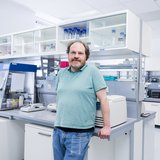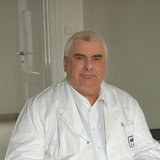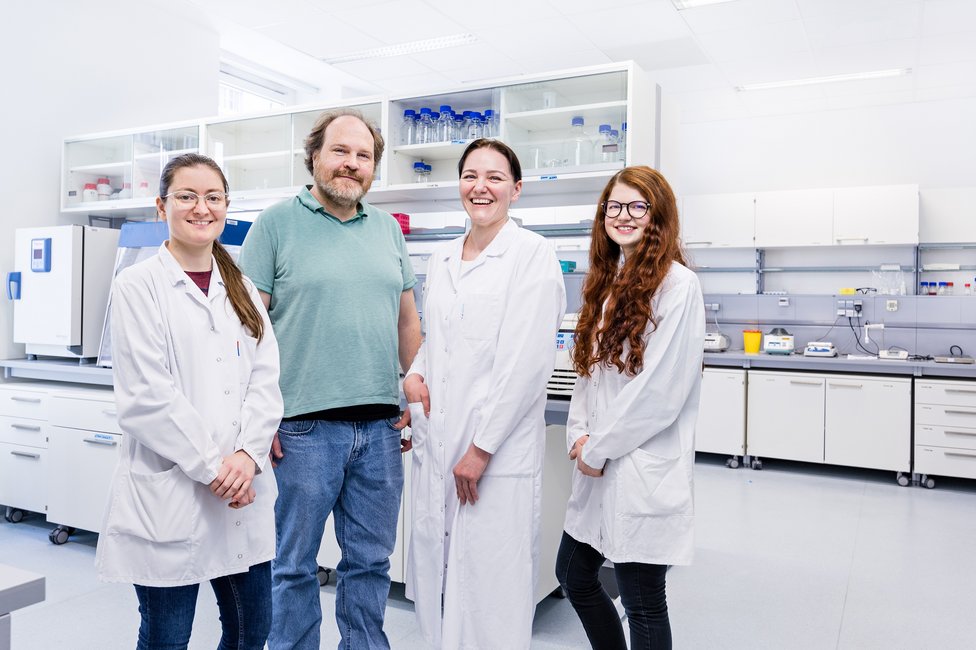Research Topic
Molecular biology of anaerobic parasites, drug resistance, mode of action of and resistance to metronidazole and other nitro drugs.
Current research
Drug resistance poses a serious problem in the treatment of many infectious agents, including anaerobic parasites (Trichomonas vaginalis, Giardia lamblia) and anaerobic bacteria (Helicobacter pylori, Clostridium spp., Bacteroides spp.). The main focus of our research lies on the molecular mechanisms causing resistance to metronidazole and other nitroheterocycle drugs which are prescribed against anaerobic infections. The redox system of anaerobic microorganisms seems to have a critical role as a target but also of an enhancer of nitroheterocycle toxicity. We study this dual role in several anaerobic microbes in order to discover a common theme and, eventually, remedies against nitroheterocycle resistance.
Leitung

Ap.Prof. Priv.-Doz. Dr. David Leitsch
Tel.: +43 (0)1 40160-38211
E-Mail: david.leitsch@meduniwien.ac.at
Team
Ana Paunkov, MSc
Tel.: +43 (0)1 40160-38212
E-Mail: ana.paunkov@meduniwien.ac.at
Mag.a Kateryna Starynets
Tel.: +43 (0)1 40160-38212
E-Mail: kateryna.starynets@meduniwien.ac.at
Arbeitsgruppe FWF P31793

Ao. Univ.-Prof. Dr. Michael Duchêne
Senior ScientistResearch Topic
structure and biosynthesis of surface molecules of Entamoeba histolytica, mode of action of metronidazole, alternative compounds with activity against E. histolytica
Current research
In many countries the intestinal amoeba Entamoeba histolytica is still around and causes dysentery and liver abscess. Up to 50,000 deaths per year are attributed to this parasite. On the surface, the amoebae carry two major antigens, a galactose and N-acetylgalactose binding lectin and a complex slimy glycoprotein, called lipopeptidophosphoglycan (LPPG). With the help of a monoclonal antibody we study the structure and biosynthesis of LPPG. This project is supported by the Austrian Science Fund (FWF).
Further main interests are the mechanism of action of metronidazole against the amoebae and the identification of alternative drug candidates.

